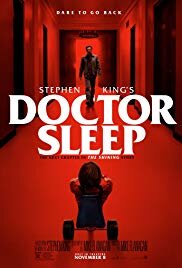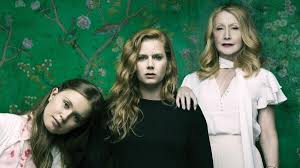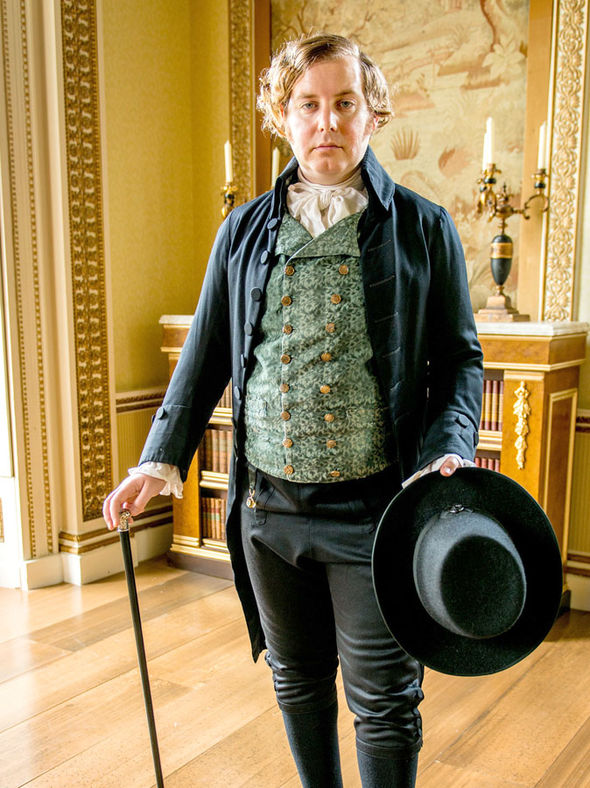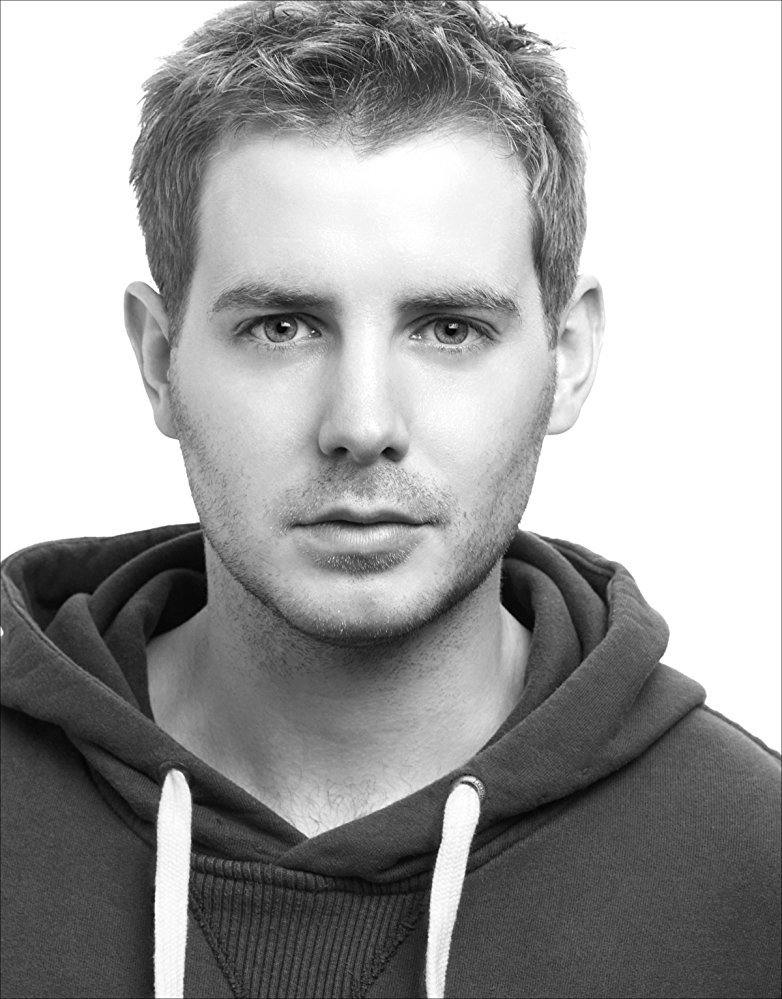Hello! if you originally subscribed to my blog because you heard about my book, Never Saw Me Coming a brief update: publication date is 9/7/21 in the US, 9/2/21 in the UK. We are currently in the process of cover design, but are not quite yet in the advanced readers copy game. I will be honest and say it’s hard to start seeing “Most Anticipated Books of 2021” lists coming out and you’re not on them, but those tend to be front loaded, and they do them seasonally.
In the meantime, when I’m not attempting to do home workouts, tending to my Literary Assistant (dog), or worrying about the next attempted coup, I’ve been somewhat feverishly been rewatching Lost.
I told a friend I started rewatching Lost and she said WHY in that exact tone of voice of people who are still angry at the ending of the show and how it increasingly unraveled as the seasons wore on. But really.. what else is there to do? I was in the mood for something that had a lot of lore behind it and let’s face it Lost’s ending was better than Game of Thrones’ was. But more important than my existential-level boredom crisis while the world is ending, is the fact that my current work in progress is a large book with an ensemble cast and multiple timelines. I was a HUGE fan of Lost when it came out—an early adopter from the time I started to see the mysterious billboards in LA when I lived there. Love or hate the show, I don’t think you can argue against the first season being really solid for a lot of reasons. Part of the reason the show turned out be a disappointment is just that—it started out so strong that people’s expectations became so high. As much as some writers like to talk down about TV, I think TV teaches us really critical lessons about storytelling, about characters, tropes, and what fans respond to. Clearly this show did some things really really right.. and also some other things really really wrong.
The Good..
Atmosphere/ Setting: Who can complain about a gorgeous island in Hawaii, with beaches, jungle, and plenty of exotic locations to explore. There are a lot of books/films/shows where the setting has as much importance as a “character” as humans do, and this is more true for Lost than anyone. For one, you love to look at the island—whether it’s a beautiful shot of the mountains, the lush-looking jungle, the beach, or some of the more creepy locales, it’s just easy on the eyes, and the show’s creators did a great job of using location to their advantage. You got the sense that they were on an isolated island, but that the island was big enough to hide various mysteries. (To throw in a neg, one of my peeves about the first season is that they never do a thorough survey to explore the entire island. For all they knew, they were actually on peninsula attached to a wholeass country, or there was a resort somewhere on the island [this happened on the The Golden Girls once], or, I don’t know, a whole self-sustained weirdo commune of semi-bad people..?) The setting had so many nooks and crannies that it was perfect for a series of mysteries, but the setting itself was also a mystery that spread out over the course of the entire series—what does “the island” want? What is it exactly? Where even is it?
Ensemble Cast: My recollection, at least, was that at the time it started airing (2004), there just weren’t any shows like it on air—not just that it had huge production costs, and was a weird combination of mystery/scifi/fantasy, but that it had a huge ensemble cast. The cast is at its pinnacle in the first season: almost everyone who’s a major character is explored and is also interesting.
Also consider, Lost was wildly diverse in 2004. Six out of the 20 main characters (ones important enough to get flashbacks and major plot lines) were minorities—that just wasn’t happening back then. Two of those characters, Jin and Sun, are still main characters despite not speaking English at all (Jin) or most of the time (Sun). With the exception of Michael and Walt, they all make if through all six seasons of the show (and TBH, I didn’t need more Michael, although I thought they could have answered more questions about Walt—I never knew if that was just bad writing, a lack of time, or the fact that Malcolm David Kelley had hit puberty at a rate too rapid to make sense for the show’s timeline). It also had a significantly overweight character, Hugo, who is not just a sidekick or there to be someone’s best friend. They lean hard on him for comic relief (the main sphere of influence for any overweight character) but to be fair Jorge Garcia is a funny actor, and often times he’s the stand-in for the viewer, expressing how crazy something that just happened was. (Rewatching this show reminded me of the now-forgotten trend of saying Dude when something objectionable happened). But on to address a diversity elephant in the room: Naveen Andrews. I like Naveen Andrews. He’s a good actor and a handsome fellow (and shout out for promoting my exact brand of curly hair). But it’s super cringeworthy that they cast an Indian to play an Arab. It falls under the “any brown guy will do” line of casting, ala “Jimmy Smitts can play this guy, right?” type of thinking. It’s not like there weren’t Arab actors back then—plenty of them got cast to play minor roles in Sayid’s flashbacks. Did viwers look at Naveen Andrews and think that he passed as Arab? (He 100% didn’t for me, but perhaps I’m saying that as an Indian and as a somewhat Arabic speaker.)
Two things that were really impressive about this first reason with respect to cast. One is that in any series, you have an arc for that season and an arc for the overall entire series. Putting aside the latter for now, within that first season-wide arc, there’s also an arc per character. It’s some pretty impressive planning to consider that just about all the main characters got major arcs in Season 1 and that these were intertwined with the overall mystery of Season 1. Another thing that was really satisfying (and continued to be, even when the show got worse) was seeing new character interactions over time because they had such a large cast of characters to work with. You have standard dyads (Jack vs Lock) or triads (Jack vs Kate vs Sawyer) but then you’d have occasional moments of people who hadn’t spent much time together suddenly forming a group (Lock + Boone on hatch duty, Sawyer + Micheal + Jin on the raft.)
Clue drops as cliffhangers: If I can take you back to 2004.. there was no Netflix. Well, there was, but it was a service that sent you DVDs in the mail in these envelopes and somehow the DVDs never broke. (I remember a friend of mine worked on the streaming side of Netflix and I thought it was weird and not sustainable lol.) Lost was a show that you watched, glued to your TV, and then had to literally wait a week for the next installment. It caused a frenzy of people discussing what various clues meant—I remember getting into heated arguments.
As the author of a thriller (ahem!), one thing I’ve paid sharp attention to is what keeps people turning pages. It’s cheap but it works: drop a “what the fuck” clue and end a chapter/episode—works every time. The first season had the luxury of walking into an entirely blank slate—anything could be on the island.. and they really gave us a smattering of everything. But the first time you heard the smoke monster?? (many thought it was a dinosaur). When Sawyer shoots and kills a polar bear? When we discover that all-around Island Man John Lock was actually in a wheelchair before the plane crash? When the light turns on in the hatch? All moments when viewers yelled WHAT—and there is nothing you want more than that as a mystery writer.
Some really stunning moments:
Plane crash: as someone who is scared of flying, the plane crash (shown over and over across the entire show…) is probably in my top three terrifying fictional plane crashes (along with Flight—a not very good movie with a very good plane crash scene—and Castaway).
Jack telling Shannon that Boone is dead: More on this later, but I hated Shannon as a character and was sort of benignly indifferent about Boone. (It’s shocking how flushed Ian Somerhalder is in Lost vs how pale he is in Vampire Diaries. And the wigs they gave him for later guest appearances on Lost are a TRAVESTY!!) Maybe it’s the COVID-isolation-for-almost-a-year, but this made me cry (along with the below two scenes) even though I knew it was coming. It was just filmed so well—no talking, a great musical score, most of the group celebrating the birth of Claire’s baby, Shannon and Sayid coming back from their date, having absolutely no idea what’s been going on until Jack walks out to tell them. Or maybe it’s because I’ve been in that awful position of catching happy, unexpecting people off guard and having to tell them that someone they loved has died, but it was such a good, good scene.
Sawyer telling Jack about his father: I’m a hardcore sucker for enemies-to-friends stories and also curmudgeons and well, Sawyer in general. But here are two people who didn’t like each other coming to a sort of “we’ve been through enough to respect each other” understanding, Sawyer is going to leave, possibly forever (possibly because he might die), and he finally decides to tell Jack that he’s figured out that the man he talked to in a bar in Australia was actually Jack’s father, and that he (Christian) was sorry but didn’t know how to say it, and was proud of him. Matthew Fox (Jack) is a champion crier. I don’t know of another male actor who does it better while still looking attractive. Here is a just a selection of good cries:
(I’m not 100% sure but I think the last one is a clip from the actual scene I’m talking about.) But the first thing he does when he realizes what Sawyer’s saying is turn away as he starts to cry, which felt extremely real because that is exactly what I do when I cry (I can relate to the whole “trying to pretend I don’t have residual psychological traumas that maybe aren’t entirely dealt with because busy dealing with whole world is on fire stuff” haha 2020 thing).
Season finale: I thought it was masterful, one of the best season finales I’ve ever seen on TV, and some of the very last scenes were ones I thought about long after the show had ended. Think about the fact that they wrangled 20-something characters into three different important threads that all converge within the finale: Rousseau doing the fake-out to take Claire’s baby, the mission to blow the hatch up with dynamite, and the raft crew taking off. You had no idea how the raft crew would do, but between the music and acting, felt elated when they took off with everyone’s help—and then (tears!) Vincent tries to swim out to the raft. For all its faults, I don’t know if a show ever had a better season finale than the quick switch from the raft crew being “rescued” only to have a weird scraggly Gordon’s Fisherman dude say “thing is… we’re going to have to take your boy” right over to the hatch being blown and seeing the long tunnel down and having no idea what was down there. I remember not being able to sleep the night of that finale because I kept thinking about the WTF moment of “we’re going to have to take your boy” and what on earth was in that hatch.
My favorite characters:
Lock: You can dislike him for sort of being a zealot, or someone who makes decisions without discussing it with others, but the thing I consistently liked about Lock is that he was unpredictable but for real reasons. In badly written fiction, people do shocking things for no purpose other than throwing a twist into the plot. But Lock always did weird things because he had his own agenda and it made sense with his internal logic: the island healed him of his paralysis so he thinks that various things are “supposed” to happen. It was also pretty pleasing to see the contrast between his pre-crash life, where he’s a pathetic loser, to how strong and agentic he is on the island. It’s like he’s written his own fan-fic.. so of course he doesn’t want to leave, and doesn’t want anyone to figure out who he is. I’ve also loved Terry O’Quinn back from when he was on an obscure show called Millennium, a Chris Carter/ X-files-like show which now that I think about it, had some similarities to Lost. I think he’s a great actor who can go from outright creepy, to strong, to vulnerable, and at some really great moments, funny.
Sawyer: Ignore the fact that Josh Holloway is just really hot with killer dimples and just consider how interesting Sawyer’s character is. He’s a person who profoundly hates himself, and wants others to hate him, who has annoying nicknames for everyone, and probably would have voted for Trump (if he wasn’t a felon, which he might be?), but I can’t help but like the guy. Sure, the show is rife with people with daddy issues, but he has these contradictions I find emotionally interesting. If given time to prepare, he will act obnoxious or even cunningly in a self-interested way that makes people dislike him—but when there’s an emergency (a fire at the campsite, when the Others try to take Walt off the raft) he unthinkingly responds by doing the “right” thing. This is far more palatable than what they do with Jack (see below). It also creates lots of fun situations where as a curmudgeon he warms up to others despite his desire to keep himself hated. (One of my favorite music-overplaying-montages from the first season is everyone on the beach, and Sayid throwing him a piece of fruit even though they’ve already fought). Sawyer isn’t trying very hard to be a hero (see: Jack) but sometimes he is one which gives him more complexity.
The Bad..
Jack: The show’s unrelenting focus on Jack (both in the first reason and in general) is a significant problem. I read that the creators/writers originally intended to kill him in the pilot but “You can’t kill the white guy.” Not that I’m complaining that he stays alive, but that the show is so overwhelmingly focused on him that I felt like he was being shoved down our throats. Having a doctor on the island does create a lot of good moments. And in the first season, I was fine with his flashback storylines: his messed up relationship with his dad, his marriage, and how he has trouble with his savior complex. But the show went overboard in its focus on him such that it didn’t make sense in some instances, or took away from other characters. He becomes the de-facto leader of the survivors—but why? Because he’s a doctor? (or the white guy..?) It absolutely would have made sense for him to be one of several main decision makers on the island, but not The Guy. Why was Jack calling the shots so often when Sayid had military experience and Lock is like a literal mountain man? Time and time again there is some dangerous situation where Jack has to go somewhere—and on top of this, typically insisting that someone like Kate doesn’t go—when this doesn’t make sense at all because he’s the only doctor amongst the survivors. Kate’s actually right in every single one of these arguments (which keep happening!!): Jack is too valuable to be carrying around dynamite and to be traipsing through the woods in search of Bad Guys. What he should have been doing is training an army of assistants in his field. (Much like Lock and Sayid should have been as well.) Not only this, every time anything remotely interesting happens, any other cast member has to say, “We have to tell Jack!” “or get Jack!” or “we need Jack!” (when these are not medical emergencies). In fact, the show suffers from people constantly saying Jack’s name. (people on this show in general say people’s names too often, but it’s the worst for Jack.) The cost of this is that a lot of that leadership stuff could have been spread out to other characters and given them more to do plotwise. (see Sayid below). In particular, Kate’s character gets weaker after the first season—as someone who’s really resourceful and scrappy, it would have been interesting to see her as more of a decisionmaker and less of a “No I’m going you can’t stop me”/ love triangle attendee.
Shannon: Shannon is the worst of the survivors. Don’t get me wrong: I liked her weirdass near-incest plotline with Boone. And introducing a character who is so obnoxious and self-centered creates a lot of natural tension for a situation where everyone has to help each other out. But she doesn’t really have an arc, when an obvious, great arc would have been that she grows the fuck up. Her relationship with Sayid is not growing the fuck up; Boone even says to Sayid that she would inevitably find an older guy amongst the survivors to take care of her and do stuff for her, which is exactly what she does. Translating the French maps (as obnoxiously as possible) and being a love object doesn’t redeem her. And later in Season 2, having an episode where we see that her stepmother was mean to her after her father died and cut her off financially doesn’t really make my sympathize with her (compare that to Kate’s childhood, Sawyer’s, or even Hurley’s—or Sun’s terrifying figure of a dad!) The worst part of this is that in no way shape or form did I believe that Sayid would fall in love with Shannon. There’s more substance to him, and he’s still hung up on Nadia. I think the writers knew they were going to kill Shannon off early in Season 2 by one of the tailees accidentally killing her, and they knew that fridging her could make Sayid go into some interesting places emotionally. But this was… not good.
The Ugly…
What do you make of a thing when you have all the right ingredients for a cake—fresh eggs, Guittard chocolate, King Arthur flour—but then the thing you end up with is all kinds of wrong? In the long run, can we still say Season 1 of Lost is good if it eventually declines to a pretty bad place?
Tune in (at some point) for an entry about Season 2, which contains my favorite Lock moment of all time.












